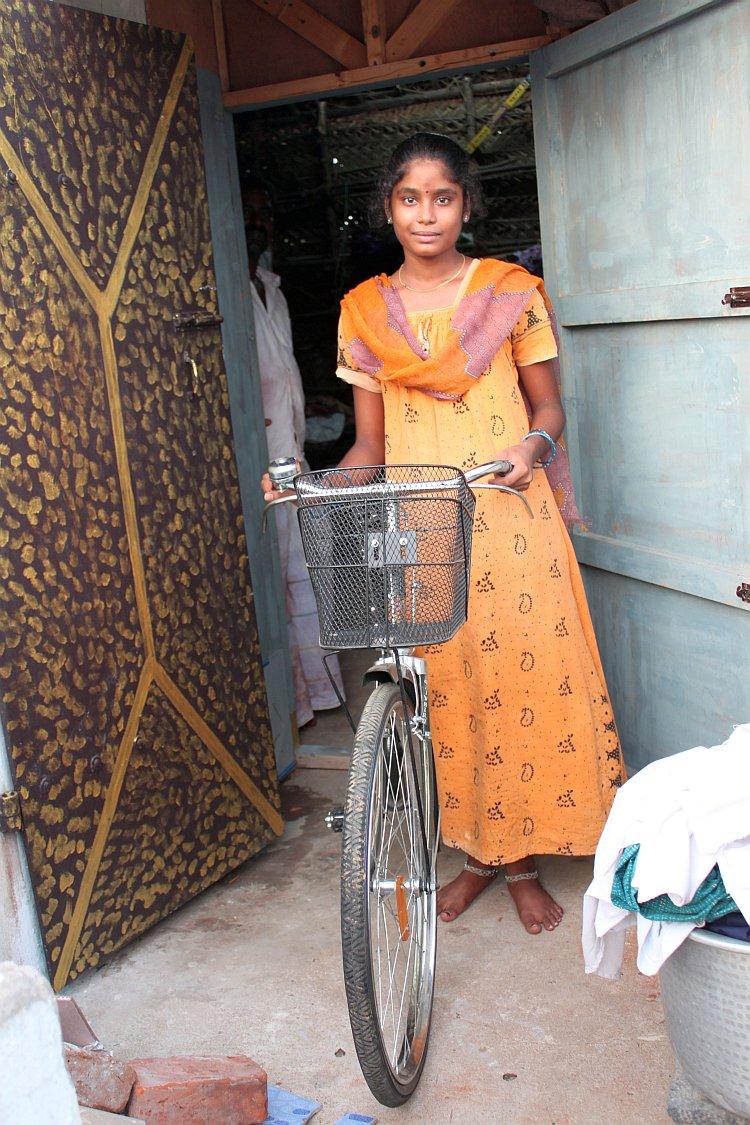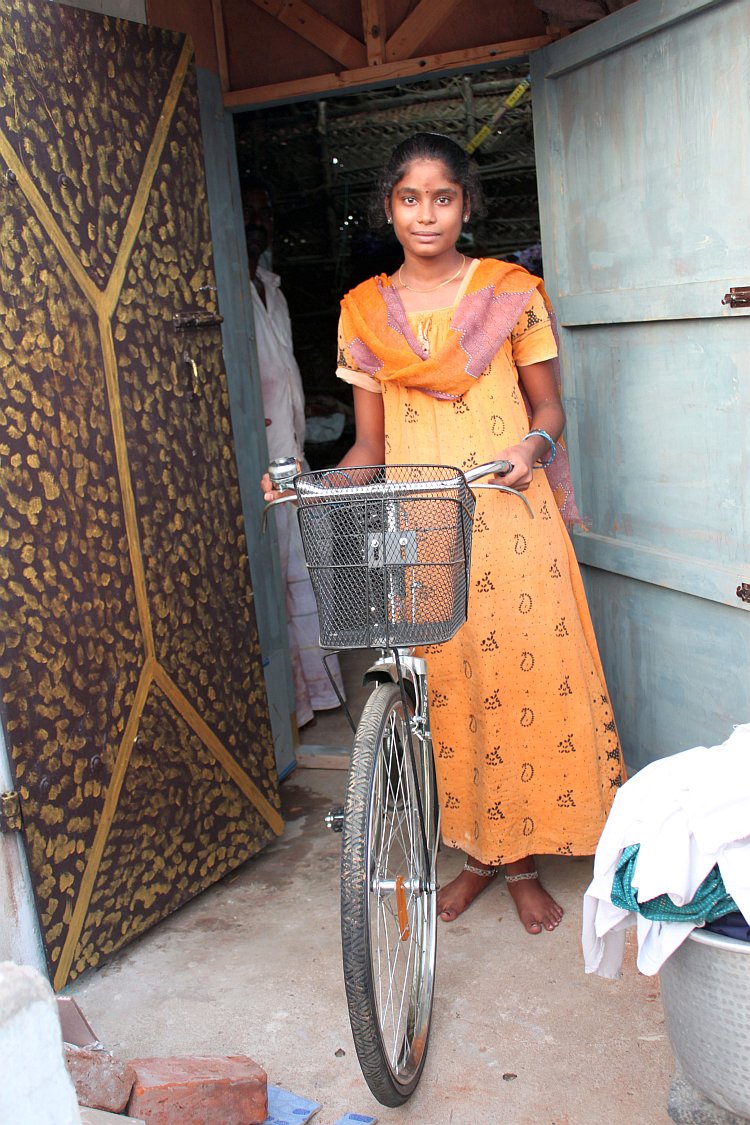PUDUCHERRY, India—It is something that Narmada’s parents could have never afforded by themselves: a bicycle. But a new government scheme has made it possible for Narmada to have one. And in rural India that is no small matter; it enables her to go to school consistently, and offers an outlook for further education.
The program was recently launched in the small Union Territory of Puducherry located on the southeast coast of India, and has already been in place in other Indian states.
Fifteen-year-old Shankari and her friend Kavitha from JJ Nagar village recently got their bicycles.
“Sixty-two girls and boys in our school got the bikes. Earlier, every day we were walking two kilometers (1.2 miles) to our school. Now we go on bicycle,” said the two in unison.
Both the girls keep their shinning new bikes inside their rooms. They have no fence or outside walls so their rooms are the only safe place to store the precious items.
The government is spending some $805,500 on the scheme in Puducherry, which covers about 16,000 students in government schools and government-aided institutions. Under the program, a new batch of students will get bikes every year.
Free bicycles for school children will not only help to push forward literacy but it also helps make children more mobile, independent, and self-confident.
“Earlier, even if I had to buy a notebook, I had to ask my father or walk the long distance to market. But now I go on my bike. It’s of greater help to my friend Rajakumari who’s very poor and has no father. Her poor daily wager mother would have never been able to afford her a bike!” says Kavitha.
While in some states like Tamil Nadu the scheme only helps marginalized segments of society, in states like Bihar and Puducherry, all children are eligible. In some other states, only girls can get bikes in order to advance female literacy. According to the 2011 Indian census, 35 percent of women in India are still illiterate.
Aishwariya, 16, from Amma Nagar in Puducherry has had a bike since primary school since her father could afford it. She got a new one from the school a week ago.
“Eighty-six students in my school got bikes. Some like my friend Narmada needed it the most because she is poor and had to walk everyday five km to and from school,” explained Aishwariya who keeps her new bike in the attic of her tiny home for safety.
Aishwariya’s 12-year-old sister, Varalakshmi says that when students ride a bicycle they feel good.
A schoolteacher living in the neighborhood, Visagan, smiles and elaborates that it’s like graduating from a motorbike to a car for them.
“In my time there was no such scheme. This will surely encourage them to study. They will also explore their surroundings more,” he adds.
In the state of Bihar, where the bicycle program has been in place longer, reports indicate that the number of girls registered in the ninth grade in state schools has more than tripled over the past four years, from 175,000 to 600,000.
Parents and teachers believe that the bikes will also help children to become more active, dream more, and encourage them to go to college.
“It’s so important to get good education. Even if cycle was not there, we were ready to send them to school by foot. However, it has become easy for them,” said Vanaja, Shankari’s mother.
The Epoch Times publishes in 35 countries and in 19 languages. Subscribe to our e-newsletter.







